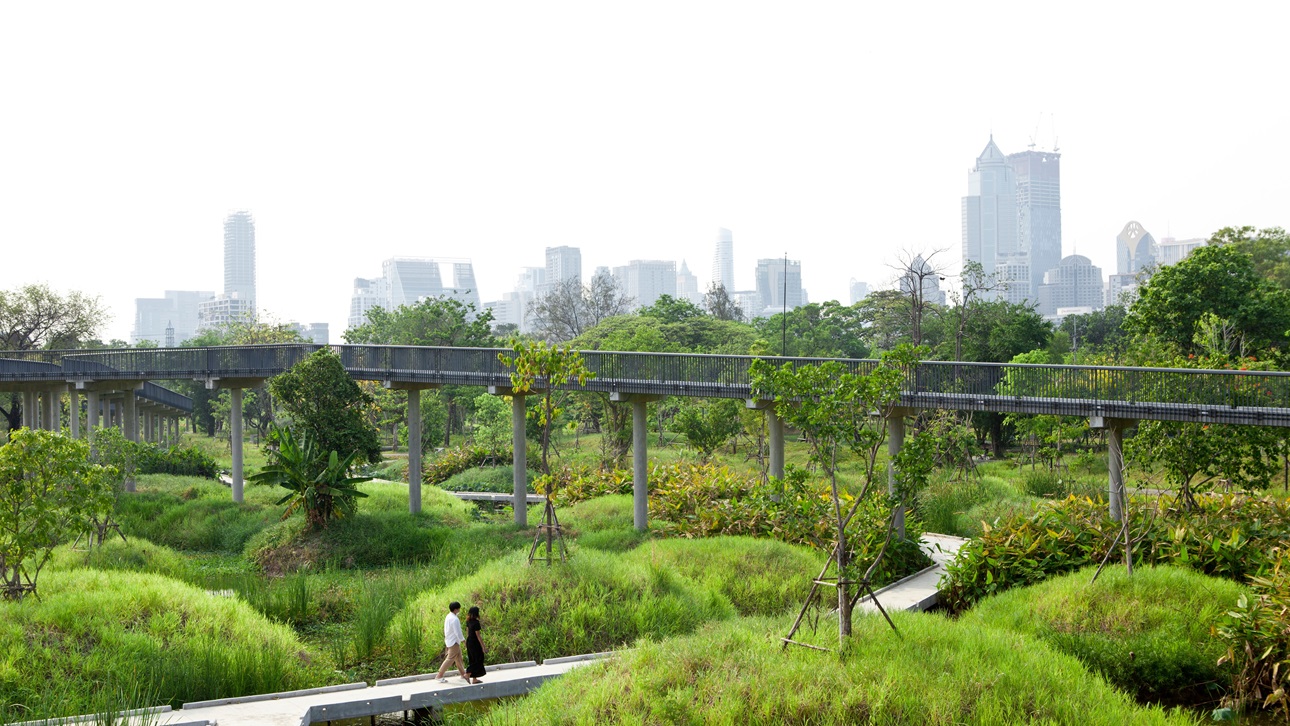Enhancing Resilience through Neighborhood-Scale Strategies

Enhancing Resilience through Neighborhood-Scale Strategies introduces real estate actors, designers, policymakers, and finance professionals to the opportunities and challenges of preparing neighborhoods and communities for accelerating physical climate risks, including extreme temperatures, floods, storms and high winds, seismic risks, water stress and drought, and wildfires.
The report includes the following:
- The business case for neighborhood-scale resilience projects
- A summary of several neighborhood-scale strategies for each physical climate risk
- An overview of public-sector policies influencing the resilience strategy context
- A selection of financing solutions and funding mechanisms applicable to neighborhood-scale solutions
As climate risks accelerate, many communities are facing new or intensifying risks. For every climate risk, however, hazard mitigation strategies exist that, if done at the neighborhood scale, can provide more collective protection than when they are done individually or ad hoc. Moreover, if planned and executed with equity in mind, neighborhood-scale strategies can account for higher-vulnerability individuals and groups, often low-income or Black, indigenous, and people of color (BIPOC) communities, which face historic and current structural barriers to adaptation and thus possess fewer resources to prepare for climate disruption.
Therefore, as communities develop neighborhood-scale strategies, social equity will need to be prioritized and community engagement will be an essential tool. As resilience design knowledge, supportive policy, and financing tools come into greater alignment, neighborhood-scale solutions can become mainstream practice and provide co-benefits for health and sustainability for current and future generations.
Report Summary: Enhancing Resilience through Neighborhood-Scale Strategies introduces real estate actors, designers, policymakers, and finance professionals to the opportunities and challenges of preparing neighborhoods and communities for accelerating physical climate risks, including extreme temperatures, floods, storms and high winds, seismic risks, water stress and drought, and wildfires.
The report includes the following:
- The business case for neighborhood-scale resilience projects
- A summary of several neighborhood-scale strategies for each physical climate risk
- An overview of public-sector policies influencing the resilience strategy context
- A selection of financing solutions and funding mechanisms applicable to neighborhood-scale solutions
As climate risks accelerate, many communities are facing new or intensifying risks. For every climate risk, however, hazard mitigation strategies exist that, if done at the neighborhood scale, can provide more collective protection than when they are done individually or ad hoc. Moreover, if planned and executed with equity in mind, neighborhood-scale strategies can account for higher-vulnerability individuals and groups, often low-income or Black, indigenous, and people of color (BIPOC) communities, which face historic and current structural barriers to adaptation and thus possess fewer resources to prepare for climate disruption.
Therefore, as communities develop neighborhood-scale strategies, social equity will need to be prioritized and community engagement will be an essential tool. As resilience design knowledge, supportive policy, and financing tools come into greater alignment, neighborhood-scale solutions can become mainstream practice and provide co-benefits for health and sustainability for current and future generations.


